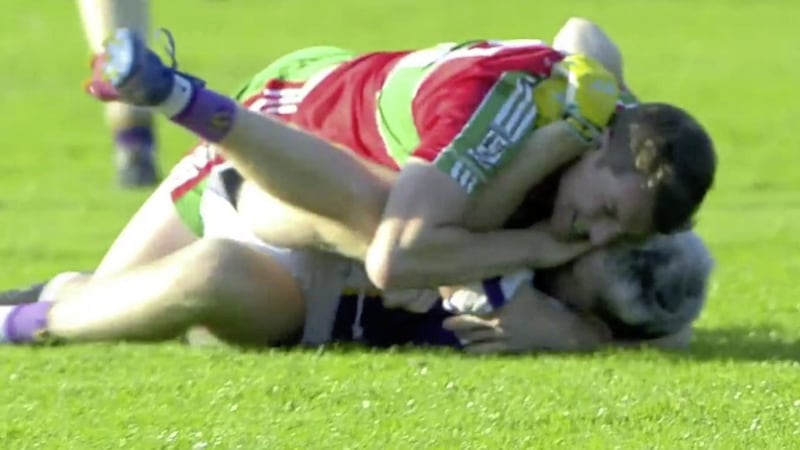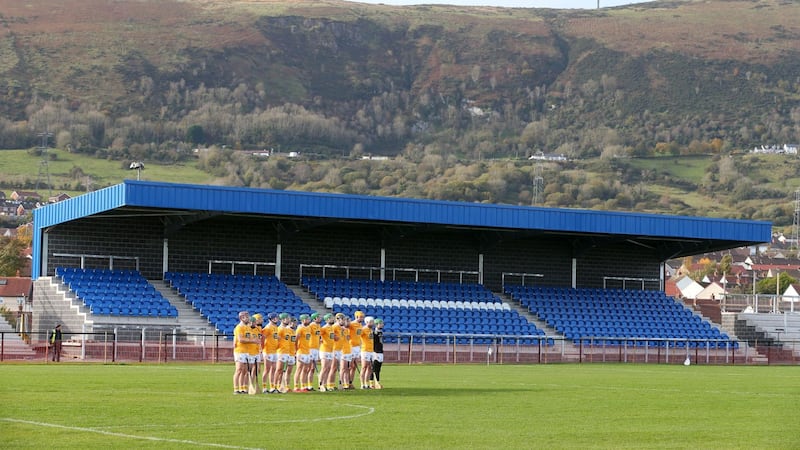WHEN Stade Francais prop David Attoub stuck his finger in the eyes of Ulster’s Stephen Ferris during a Heineken Cup game in 2010, a judge described it as “the worst act of contact with the eyes that I have had to deal with: it is a case of deliberate eye-gouging”.
Ferris actually had his eyes gouged twice in the one incident. When he stood up out of the ruck, Attoub’s team-mate Julien Dupuy had not one but two goes at him.
Attoub was banned for 70 weeks (16 months).
Dupuy was banned for 24 weeks (six months), which was reduced to 23 on appeal.
That was at a time when rugby felt it had to clamp down.
A two-year ban for another French front row forward, Colomiers prop Richard Nones, in 1999 put a brief stop to such incidents. It was four years before the next recorded ban in professional rugby.
Because of its nature, rugby has more incidents of what it now calls “contact with the eye area”. The bottom of a ruck can be a lawless place, but also an unfortunate one.
Rugby’s approach to discipline is crucial.
No two incidents are the same, and that’s how they are treated.
The GAA’s more arbitrary approach is a disaster.
It’s like there are only primary colours in our approach to discipline. It’s either green or it’s blue. There are no shades, no distinctions, nothing to differentiate one from the other.
It is only in the very, very rarest of circumstances that a player is given anything above the minimum.
Punch someone in the face? One match.
Spit at an opponent? One match.
Elbow someone? One match.
The irony is that if you try and kick someone but you miss, you get two matches.
Stamping is two games as well, even though unless you’re stamping on someone’s head, it’s down the scale in terms of the harm it can do.
And if you stamp on someone’s head, guess what? Two matches.
Then there’s gouging.
It is the lowest act you can perform on a football pitch, alongside biting and spitting.
The scenes at the end of the Dublin semi-final between Ballymun and Kilmacud Crokes on Sunday were just about the worst you could see on a football field.
The grapple between Ballymun’s Jason Whelan and Kilmacud’s Cian O’Connor was something that has absolutely no place in any sport.
O’Connor appeared to make contact around Whelan’s eye first, before the Ballymun man wrestled his opponent to the floor and looked to have made more prolonged contact with O’Connor’s eye area.
Here’s the best bit. The referee booked them both.
And so unless Dublin CCC really want to go after them, Whelan will be free to play in the county final next weekend.
That would be an affront to Dublin.
The GAA’s approach to discipline is so arbitrary, even if they do pursue it, the likelihood is that a two-game ban will be the absolute maximum.
It could even be just one game, if it was successfully argued that no injury was caused.
Such incidents are thankfully still a real rarity, but will only remain so if it is properly stamped out with firm action.
We have become an extremely litigious society in Ireland.
Our rulebook wasn’t written to deal with the kind of people who’d fall walking down the street and look to sue because the surface was uneven.
But that’s where we are now. Appealing a suspension has become the norm, no matter how obvious the incident was.
Clubs are hiring high-profile lawyers to systematically pick apart rules that were written a generation ago and are no longer able to withstand the legal pressures.
They were also written for a more honest game that was devoid of the modern treachery and sneakiness.
And the punishments are so prescriptive, so black-and-white that the disciplinary bodies are working with both hands tied behind their backs.
Bigger bans inevitably go nowhere. It gets appealed, goes around in a circle and lands back with either the minimum ban or worse, no ban at all.
We have a disciplinary code that is nowhere near fit for the purpose it intends to serve.
Just look at the recent biting incident in Armagh, where a Culloville player had a proposed 48-week ban reduced to eight weeks on appeal.
If he didn’t bite, then what did he get eight weeks for?
And if he did, then on what grounds was it reduced?
I have experience in both fields, having taken a brother to hospital after having his ear bitten during a league game a few years ago.
The offender got four weeks. He appealed, and his ban was quashed.
I’ve also had someone attempt to gouge my own eye, although thankfully he missed. It’s scary to think of the damage it could do. You wonder sometimes do people actually realise that when they’re trying to pull such a move.
The idea of potentially blinding an opponent – and make no mistake, that could very easily happen – through such an horrendous act would revolt almost all players.
Those that would think about trying it need to know that it’s not ok.
Throw the book at them, and throw it hard.
Don’t worry if it hits. You’ll only get one match.








